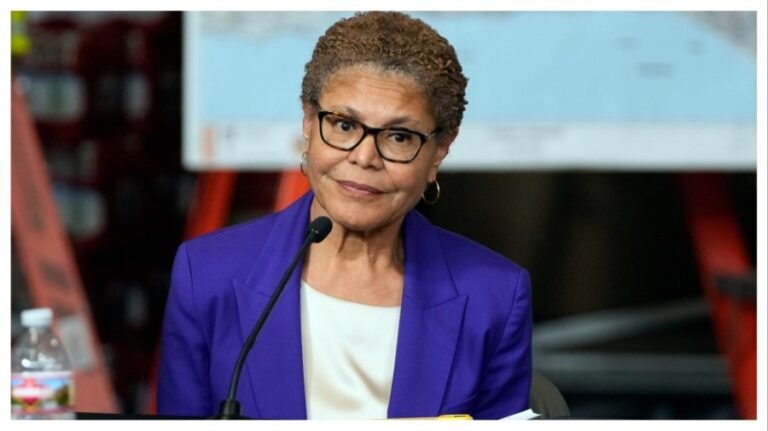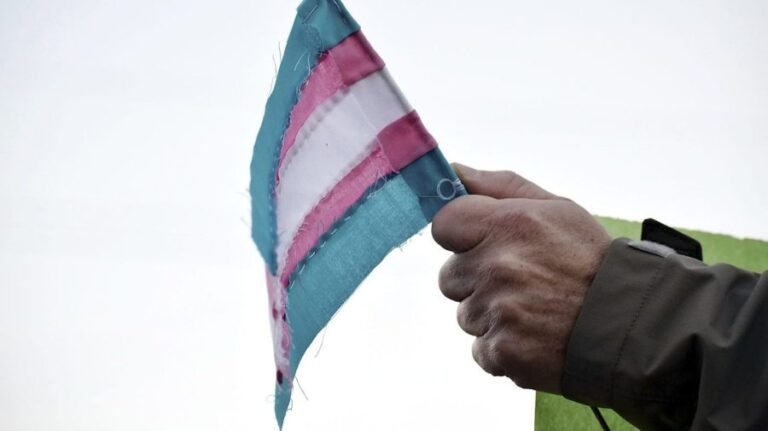
Sen. Tammy Baldwin (D-Wis.) on Wednesday questioned Defense Secretary Pete Hegseth over his decision to choose Pride Month as the time to direct the Navy to rename a ship named for gay rights activist Harvey Milk.
Speaking during a Senate Appropriations defense subcommittee hearing, Baldwin said she was “disappointed” Hegseth was choosing to focus his time on renaming a John Lewis class of oil replenishment ships named for civil rights leaders, including the USNS Harvey Milk.
“I think we can all agree that we are at a critical point in our history with respect to global threats, the need to counter adversaries like China and Iran — you’ve gotten a number of questions along those lines — and I’m disappointed that you are instead focusing on a class of ships named for civil rights leaders,” Baldwin said.
“This committee will continue to pursue serious work in the interests of American national security, and I ask you to choose to join us in that endeavor,” she added.
Hegseth replied that the Defense Department is “not interested in naming ships after activists. That’s the stance we’re taking.”
A former Navy lieutenant who served during the Korean War, Milk in 1977 became the first openly gay man elected to public office in California. He was assassinated a year later and posthumously was awarded the Presidential Medal of Freedom in 2009.
But Hegseth has ordered the Navy to strip USNS Harvey Milk of its moniker, prompting outcry from Democrat lawmakers and former Navy officials, who have called the move “spiteful” and “shameful.”
Other ships could also soon see their names stripped — including the John Lewis class vessels named for Supreme Court Justice Thurgood Marshall, Justice Ruth Bader Ginsburg and Harriet Tubman — as part of Hegseth’s dismantling of any military program or reading material dealing with or referencing diversity, anti-racism or gender issues.
Baldwin, who was the first openly gay candidate to be elected to the Senate, also questioned Hegseth over the analysis used to justify booting transgender service members from the military.
President Trump in a Jan. 27 executive order sought to remove transgender people from the military, stating they cannot satisfy the “rigorous standards” needed to serve, and that allowing their participation threatens military readiness and unit cohesion. But that argument has long been used to keep marginalized groups — including Black, gay or female Americans — from serving.
Transgender active-duty service members on Friday had to decide whether to leave the military on their own or be forced out under a 30-day deadline announced last month by Hegseth.
Baldwin wanted to know the specific assessment the Defense Department conducted on the ban’s impact on U.S. national security prior to its implementation, which Hegseth could not immediately name.
“The department is planning to separate several 1,000 service members due to your partisan beliefs about troops who are transgender,” Baldwin. “Mr. Secretary, I’ve seen your speeches and social media posts, but what I’m interested in is the sound policy analysis that we would expect from the Secretary of Defense and how this misguided decision will impact military readiness.”
“We did extensive analysis,” Hegseth replied. “We agree with the assessment of the executive order that was issued by the White House that there are mental health issues associated with gender dysphoria that complicate military service and readiness, and as a result, we made the decision.”
Baldwin again pressed that she has “asked for that analysis. Please provide it for me and the committee,” to which Hegseth said he would.


